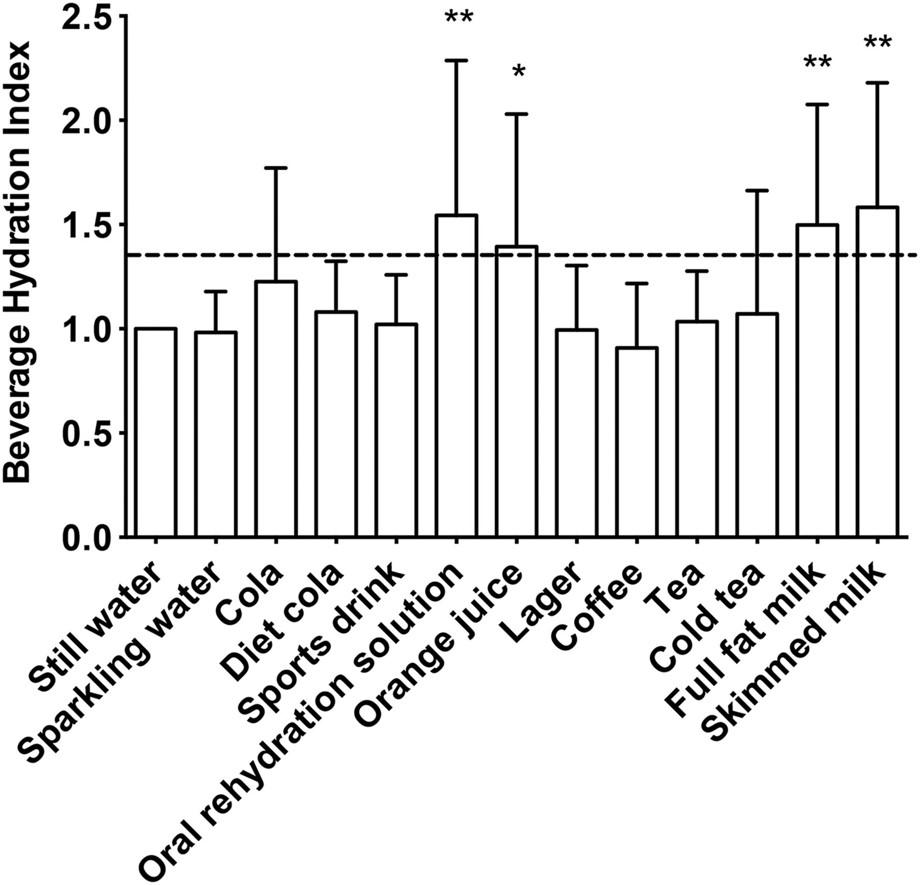It’s easy to tell the fall is coming when the chapstick comes out. While severe dehydration can be a life-threatening problem in hot summer months, mild but chronic dehydration is common in the fall and winter due to cold, dry air. A quick glance through the literature shows that even a two percent body water deficit can significantly impact cognitive functioning: concentration, critical thinking and memory.
Staying hydrated is an important part of staying healthy, which has historically meant simply drinking enough water. Today’s diets, however, are filled with a variety of other beverages such as coffee, soda and beer. Conventional wisdom has always been that these are no good for hydration, but science has a way of turning things on their head.
A group of nutritionists from the UK undertook a study to examine how beverages affect hydration by observing how much fluid a subject’s body retained in the four hours after drinking different beverages. Water was assigned an arbitrary value of one, and all other beverages were assigned a Beverage Hydration Index score that compared how well the body retained the fluid to how well it retained water.
Of common beverages, the best hydrater was milk, with a BHI score of 1.50, meaning that the body retains half again as much fluid after a glass of milk than after a glass of water. This was on par with oral rehydration solutions, which are used to treat severe dehydration in those suffering from diarrhea or other conditions.
Interestingly, no beverages had significantly lower BHI values than water. While coffee, tea and soda all contain caffeine, a diuretic that might be expected to reduce hydration, the doses in the beverages used in the study varied between 100-200 milligrams, below the 300-milligram threshold that has a measurable impact on hydration.
The lager also had a modest alcohol content that might reduce BHI. The study’s authors theorize that “the alcohol might have countered the positive influence of energy density on the BHI.” Another study found that alcoholic beer had a 12 percent lower BHI than equivalent non-alcoholic beer.
One unique aspect of this study was its subjects. While there is a great deal of literature on hydration for athletes or those who are clinically dehydrated, this is one of the first studies that attempts to address hydration in “euhydrated” subjects, which is to say those that are not overhydrated or dehydrated.
This emphasis shows up in its conclusions. While milk may have a higher BHI than sports drinks, the proteins that give it that elevated BHI will lead to bloating and cramps if consumed in the middle of intense exercise.
The BHI calculated in this study is a useful measure, but it is only one number, unable to provide a nuanced or contextual look at human hydration. Always consult your doctor or a nutritionist for specific advice about dietary questions.





